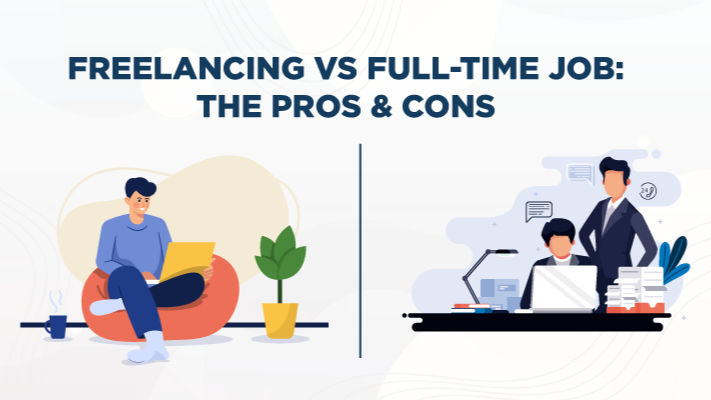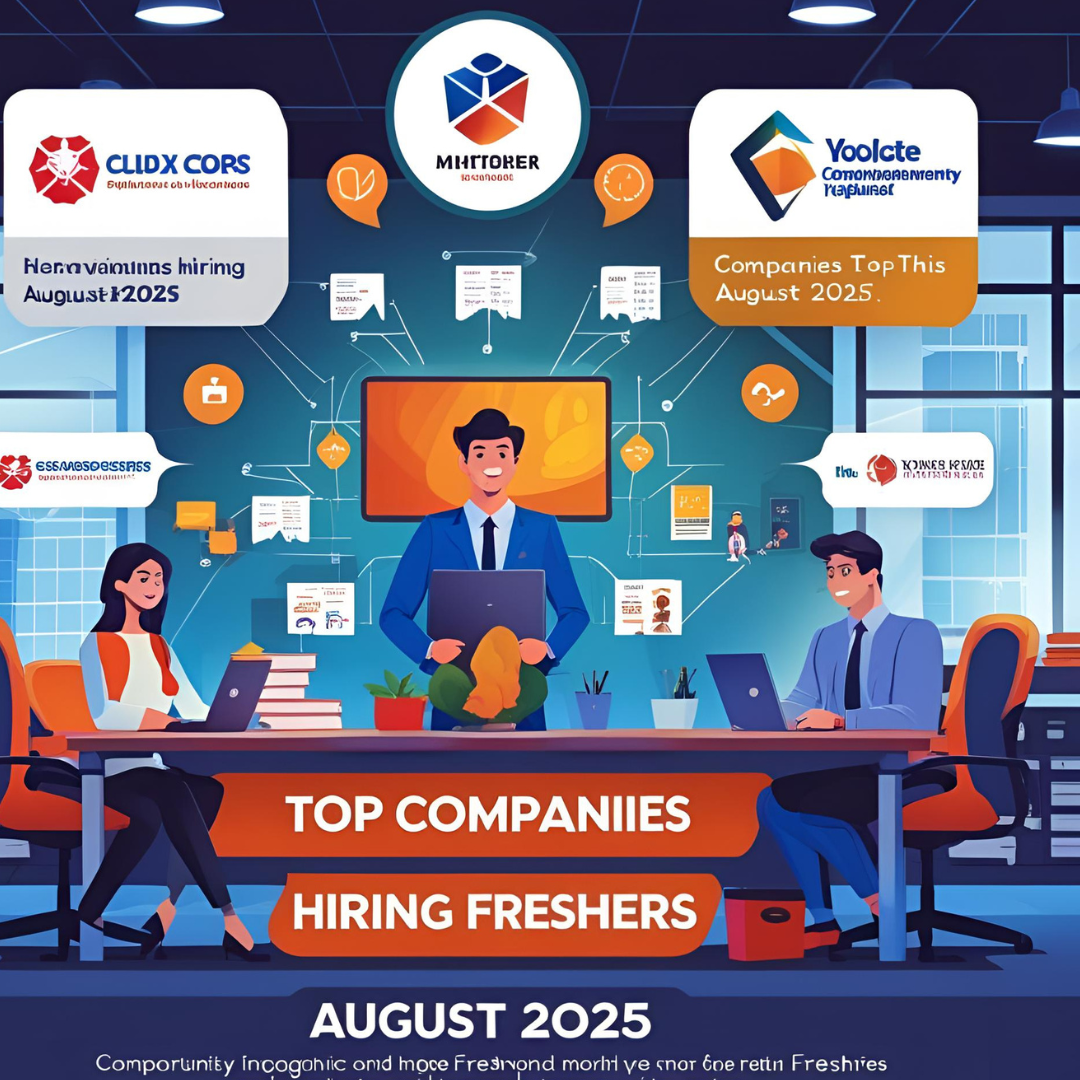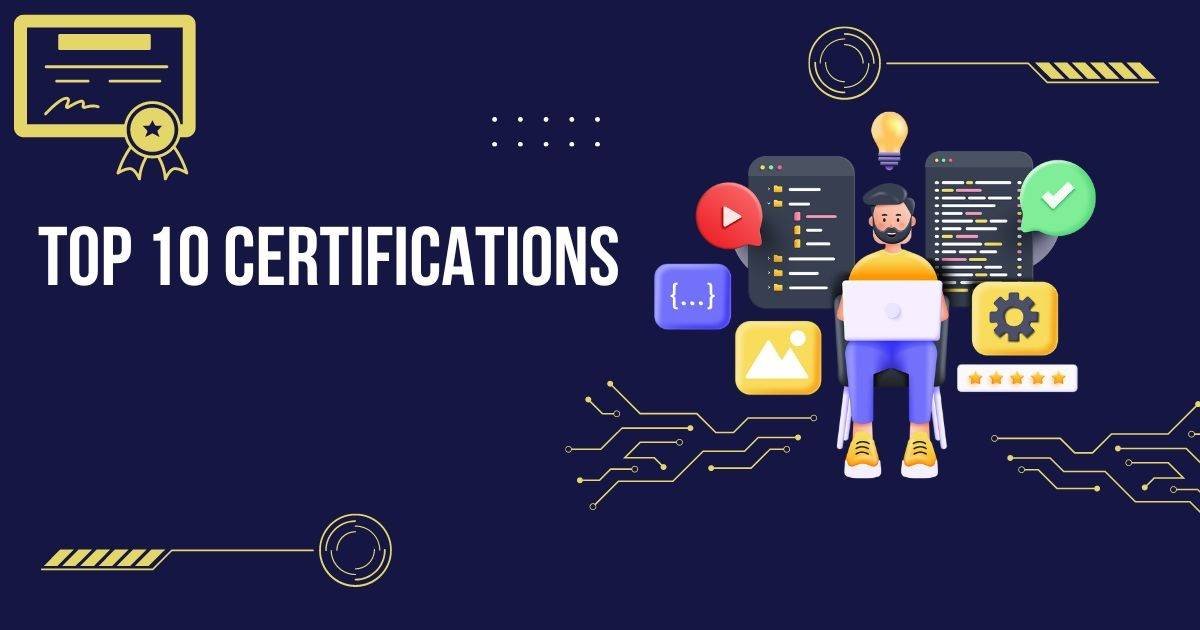
Freelancing vs Full-Time Job in 2025: Which One Suits You Better?
Freelancing in 2025: Is It Better Than a Full-Time Job?
In recent years, freelancing has rapidly evolved from a side hustle into a full-fledged career path for millions of professionals around the world. As we step into 2025, this transformation is more pronounced than ever. With technology bridging geographical gaps, the rise of remote work culture, and growing dissatisfaction with the traditional 9-5 setup, freelancing is no longer just an alternative—it’s a lifestyle choice.
But the question remains: Is freelancing in 2025 truly better than a full-time job? The answer isn’t a simple yes or no. It depends on individual priorities, skills, lifestyle goals, and risk appetite. This blog explores the current state of freelancing, its benefits, challenges, and how it compares with the stability of a full-time job in 2025.
The Rise of Freelancing in 2025
Freelancing is booming. According to recent surveys, more than 50% of Gen Z and millennials prefer freelance or gig work over traditional employment. This shift is driven by several factors:
-
Digital platforms: Websites like Upwork, Freelancer, Fiverr, Toptal, and LinkedIn have made it easy to find freelance gigs.
-
Remote work acceptance: COVID-19 permanently shifted workplace dynamics. Companies now openly hire remote freelancers for projects instead of onboarding full-time employees.
-
AI and automation: While AI has automated repetitive jobs, it has also created demand for niche, creative, and skilled freelance roles.
-
Entrepreneurial mindset: The younger workforce is inclined toward independence, flexibility, and growth beyond linear career ladders.
In 2025, freelancing is not restricted to writing or design. High-demand fields like software development, digital marketing, AI consulting, UX/UI, video editing, legal services, and even project management have embraced the freelance model.
Advantages of Freelancing in 2025
-
Flexibility and Autonomy
Freelancers can choose when, where, and how much they work. Want to work from a beach in Goa or a café in Prague? As long as deadlines are met, it’s possible. This freedom is priceless for many. -
Diverse Income Sources
Instead of relying on one paycheck, freelancers can work with multiple clients. This diversification can actually provide more financial security in uncertain economic times—if one client drops off, others can fill the gap. -
Work-Life Balance
Freelancers control their schedules. This allows them to prioritize personal wellness, family time, and even travel. In 2025, mental health and lifestyle quality are top career priorities, and freelancing aligns with this trend. -
Potential for Higher Earnings
Experienced freelancers often earn more per hour than salaried employees. Specialized skills like blockchain development, SEO consulting, or UX research can fetch premium rates. -
Global Clientele
Thanks to globalization and online platforms, freelancers in India, Philippines, or Brazil can work with clients in the US, UK, or Australia—broadening opportunities and cultural exposure.
Challenges of Freelancing in 2025
-
Inconsistent Income
One of the biggest downsides is irregular cash flow. Projects may dry up unexpectedly, clients may delay payments, and there are no guaranteed paychecks. -
Lack of Benefits
Unlike full-time jobs, freelancers don’t receive health insurance, paid leaves, retirement benefits, or bonuses. They must manage their own safety nets. -
Self-discipline and Burnout
With no boss or team around, freelancers must be highly disciplined. Managing multiple clients and deadlines without proper structure can lead to overwork and burnout. -
Client Acquisition Stress
Continuously finding clients, pitching, and handling rejections is part of the game. For introverts or those new to freelancing, this can be exhausting. -
Lack of Career Growth Ladder
While freelancing can offer learning opportunities, it doesn’t come with promotions, designations, or appraisals. Skill growth is self-driven and requires investment.
Full-Time Jobs in 2025: Are They Outdated?
Absolutely not. Full-time employment still holds strong appeal, especially in large organizations offering stability, benefits, structured growth, and mentorship.
-
Job Security and Consistent Pay
Having a fixed salary each month offers peace of mind—especially important for those with families, EMIs, or financial obligations. -
Access to Training and Resources
Companies often sponsor certifications, workshops, and courses to upskill employees. -
Team Culture and Networking
Many professionals thrive in structured environments with team collaboration and clear role definitions. -
Employer-Provided Perks
From health insurance to paid leaves, full-time jobs often come with a comprehensive benefits package. -
Defined Career Path
Employees often have clearer growth trajectories, with appraisals, promotions, and leadership tracks.
Freelancing vs Full-Time Job: Which One Wins in 2025?
| Factor | Freelancing | Full-Time Job |
|---|---|---|
| Flexibility | High | Low to Medium |
| Income Stability | Low (Varies with clients) | High (Fixed monthly salary) |
| Career Growth | Self-driven | Structured & Company-led |
| Benefits & Insurance | Self-arranged | Employer-provided |
| Work-Life Balance | Customizable | Depends on company culture |
| Client Interaction | Frequent (Client hunting, pitching) | Internal stakeholders only |
| Risk Factor | Higher (No job guarantee) | Lower (With job contract) |
| Learning Curve | Varied (Project-based) | Often linear but structured |
Ultimately, the right choice depends on your personality, lifestyle preference, and risk tolerance.
Tips to Thrive as a Freelancer in 2025
-
Niche down: Don’t be a generalist. Specialize in one area and build authority.
-
Build a strong portfolio: Showcase your best work and client testimonials.
-
Use platforms wisely: Maintain profiles on platforms like Upwork, Fiverr, Toptal, and LinkedIn.
-
Set boundaries: Just because you’re flexible doesn’t mean you’re always available.
-
Stay updated: Invest in online courses, read industry news, and attend virtual conferences.
-
Plan finances: Save for taxes, retirement, and emergencies. Consider a financial advisor.
Final Thoughts
Freelancing in 2025 is not just a trend—it’s a legitimate and rewarding career path. For those seeking freedom, creativity, and diverse work experiences, freelancing is ideal. For those who value stability, structure, and consistent income, full-time jobs remain a reliable choice.
What’s important is not to pick one over the other based on hype, but to evaluate what works best for your goals, lifestyle, and values. Some professionals even combine both through hybrid careers—working part-time jobs while freelancing on the side.
Whatever you choose, the future of work is flexible. And in 2025, you get to define your own career blueprint.
FAQs
Q1: Can freelancing be a stable career option in 2025?
Yes, freelancing can be stable if approached strategically. Building long-term client relationships, having multiple income streams, saving consistently, and specializing in high-demand skills can make freelancing a sustainable career.
Q2: Do freelancers pay more taxes than full-time employees?
Freelancers are responsible for managing their own taxes. While they may pay similar or slightly higher taxes depending on income brackets and country, they can also claim business-related expenses (like laptop, software, internet, etc.) as deductions, which can balance the tax load.
Q3: Is it possible to switch between freelancing and full-time jobs in 2025?
Absolutely. Many professionals switch between the two based on life stages and goals. Some employers even prefer candidates with freelancing experience due to their self-discipline, problem-solving skills, and exposure to diverse projects.



